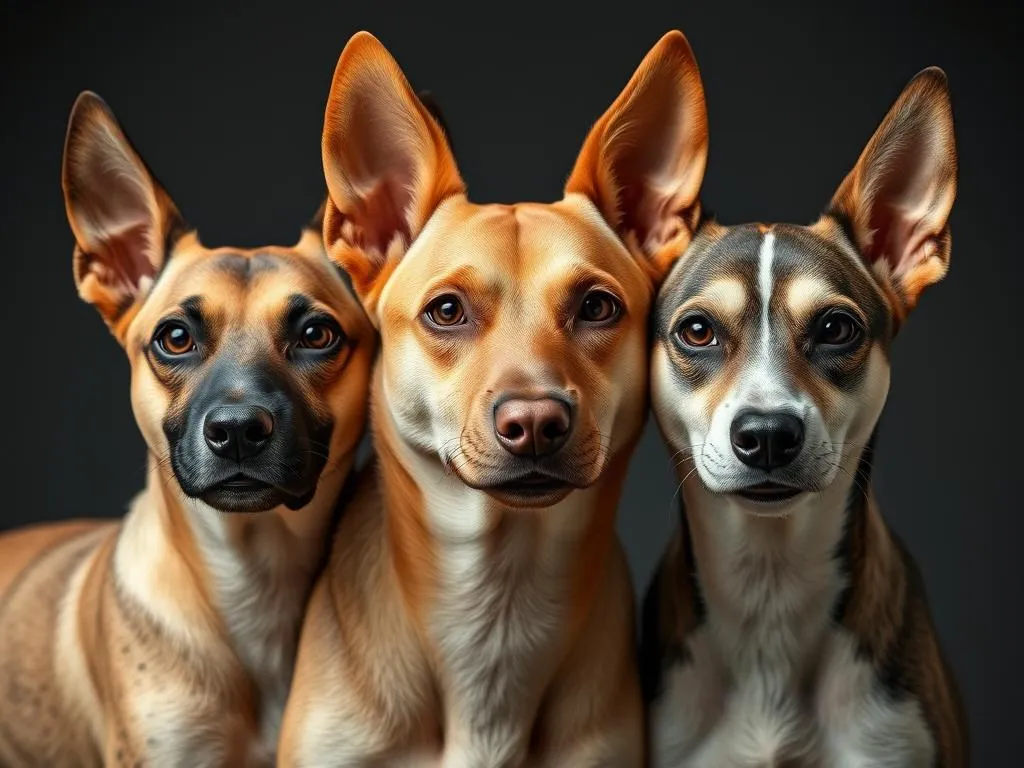
Understanding short snouted dog breeds is essential for both potential pet owners and dog enthusiasts. These breeds, known for their distinctive brachycephalic facial structure, offer a variety of traits that make them suitable companions for different lifestyles. In this article, we will explore the characteristics, popular breeds, care tips, and training methods that are crucial for anyone considering a short snouted dog.
Characteristics of Short Snouted Dog Breeds
Physical Traits
Short snouted dog breeds are characterized by their unique facial structure. Brachycephalic dogs have shortened skulls, leading to a broad, flat face. This feature often includes round faces and wide-set eyes, giving them an endearing appearance. Many of these breeds also possess compact bodies, short legs, and a sturdy build.
Common physical characteristics include:
– Shortened muzzle
– Wide-set eyes that often convey a playful or curious expression
– Rounded skulls with a noticeable stop (the point where the forehead meets the nose)
Temperament
When it comes to temperament, short snouted breeds tend to exhibit a range of personality traits. Generally, these dogs are known for being affectionate, playful, and social. They often thrive on companionship and enjoy spending time with their families. However, some breeds may display stubbornness or independence, which can make training a bit challenging.
It’s important to note that temperament can vary significantly among different breeds. For instance, while French Bulldogs are known for their laid-back demeanor, Pugs are often more energetic and playful.
Health Considerations
One of the most critical aspects to consider when adopting a short snouted dog is their health. These breeds are prone to several common health issues, primarily due to their unique physical characteristics. Some of these include:
- Breathing difficulties: Brachycephalic dogs often struggle with respiratory issues, especially in hot or humid weather.
- Dental problems: Short snouts can lead to overcrowded teeth, making dental care essential.
- Skin issues: Wrinkles and skin folds require regular cleaning to prevent infections.
The lifespan of short snouted dog breeds can vary greatly, but many live between 10 to 15 years with proper care.
Popular Short Snouted Dog Breeds
French Bulldog
The French Bulldog originated in England and was later refined in France. These dogs are known for their playful nature and affectionate demeanor. French Bulldogs thrive on human interaction, making them excellent companions.
Care Needs: They require moderate exercise, such as short walks and playtime, as they are prone to overheating. Regular grooming helps manage shedding and keep their skin healthy.
Health Considerations: Common issues include breathing difficulties, hip dysplasia, and skin allergies.
Pug
Pugs have a rich history, tracing back to ancient China. They are characterized by their charming personalities and distinctive curled tails. Pugs are known for being lively and sociable, often forming strong bonds with their owners.
Care Needs: Pugs benefit from daily walks and interactive play. Due to their short snouts, they should avoid strenuous exercise, particularly in warm weather.
Health Considerations: Pugs are prone to obesity, so a balanced diet is crucial. They may also experience breathing issues and eye problems.
Boston Terrier
The Boston Terrier, often called the “American Gentleman,” was developed in the United States. This breed is known for its tuxedo-like coat and lively personality. Boston Terriers are intelligent and eager to please, making them relatively easy to train.
Care Needs: Moderate exercise, such as daily walks and play sessions, helps keep them healthy. They require minimal grooming but benefit from regular dental care.
Health Considerations: Boston Terriers may face respiratory issues, eye conditions, and skin allergies.
Shih Tzu
Shih Tzus are known for their regal appearance and friendly disposition. They were bred as companion dogs for Chinese royalty and have maintained their affectionate nature. With their long, flowing coats, Shih Tzus often require regular grooming.
Care Needs: They enjoy short daily walks and playtime but prefer a comfortable indoor environment. Regular grooming is essential to prevent matting.
Health Considerations: Shih Tzus can suffer from breathing issues, eye problems, and hip dysplasia.
Cavalier King Charles Spaniel
The Cavalier King Charles Spaniel is renowned for its friendly and affectionate demeanor. This breed has a rich history tied to royalty and is known for its elegant appearance and loving nature.
Care Needs: Cavaliers require regular exercise, including walks and playtime, but they also love to cuddle. Their coats need regular grooming to prevent tangles.
Health Considerations: Common health issues include heart problems, ear infections, and eye conditions. Regular veterinary check-ups are essential for maintaining their health.
Choosing the Right Short Snouted Breed
Assessing Lifestyle and Environment
When considering a short snouted dog, it’s important to assess your lifestyle and living environment. Some breeds may be better suited for apartment living, while others thrive in larger homes with yards. Short snouted dogs generally require less space, but they still need daily exercise and mental stimulation.
- Apartments vs. Houses: Many short snouted breeds adapt well to apartment living, provided they receive regular outdoor exercise.
- Activity Level: While some breeds like Pugs are energetic, others like French Bulldogs may be more laid-back.
Allergies and Sensitivities
Families with allergies should consider the potential sensitivities of short snouted breeds. Some dogs can develop skin issues, and their flattened faces may lead to excessive tearing, which can cause skin irritation.
Adoption vs. Buying
Deciding whether to adopt from a shelter or purchase from a breeder is a significant choice.
Adoption Pros and Cons:
– Pros: Saving a life, often lower costs, and many shelters provide initial vaccinations and spay/neuter services.
– Cons: Unknown history, potential behavioral issues, and health problems.
Buying Pros and Cons:
– Pros: Known lineage, often healthier puppies, and access to reputable breeders who prioritize health.
– Cons: Higher costs and potential for unethical breeding practices.
Care Tips for Short Snouted Dog Breeds
Diet and Nutrition
Proper nutrition is vital for maintaining the health of short snouted breeds. A balanced diet tailored to their specific needs can prevent many health issues.
- Recommended Dietary Needs: High-quality dog food formulated for their age, size, and energy level is essential.
- Common Dietary Issues: Obesity is a prevalent concern, especially for breeds like Pugs and French Bulldogs. Portion control and regular exercise are crucial.
Exercise Requirements
While short snouted breeds don’t require excessive exercise, daily activities are important for their physical and mental health.
- Ideal Types of Exercise: Short walks, gentle play sessions, and interactive toys are excellent options.
- Tips for Indoor Activities: Engaging games like hide-and-seek or puzzle toys can provide mental stimulation.
Grooming and Maintenance
Regular grooming helps keep short snouted breeds looking and feeling their best.
- Grooming Needs: Most breeds require regular brushing to manage shedding and prevent matting. Bathing may be needed every few weeks.
- Importance of Dental Care: Dental hygiene is crucial. Regular brushing and dental check-ups can prevent serious health issues.
Regular Veterinary Care
Routine veterinary visits are essential for early detection of health issues and maintaining overall wellness.
- Recommended Health Check-ups: Annual check-ups and vaccinations are necessary to ensure a healthy life.
- Vaccination Schedules: Follow your veterinarian’s guidelines for vaccinations to protect against common diseases.
Training Short Snouted Dog Breeds
Basic Training Techniques
Training is essential for all dogs, especially short snouted breeds. Early socialization is crucial for developing well-rounded pets.
- Importance of Early Socialization: Introducing your puppy to various environments, people, and other animals can help prevent behavioral issues later on.
- Recommended Training Methods: Positive reinforcement techniques, such as treats and praise, are effective for training short snouted breeds.
Behavioral Challenges
While many short snouted breeds are affectionate and eager to please, they can also present behavioral challenges.
- Common Behavioral Issues: Stubbornness and separation anxiety are common. Consistent training and positive reinforcement can help mitigate these issues.
- Tips for Addressing These Challenges: Patience, consistency, and engaging activities can help keep your dog focused and happy.
Resources for Training
Numerous resources are available for dog training, including books, online courses, and professional trainers.
- Recommended Books: Look for titles focusing on positive reinforcement and socialization strategies.
- Courses and Trainers: Local training classes can provide valuable hands-on experience and socialization opportunities.
Conclusion
In summary, short snouted dog breeds offer unique personalities and companionship that many dog lovers cherish. Understanding their characteristics, care needs, and training requirements is crucial for ensuring a happy and healthy life for these beloved pets. Owning a short snouted dog can bring immense joy, and with proper care and attention, they can be wonderful additions to any family.
FAQs
What are the most common health issues for short snouted breeds?
Short snouted breeds are prone to breathing difficulties, dental problems, and skin infections.
Are short snouted dogs good with children?
Many short snouted breeds are affectionate and friendly, making them good companions for children.
How much exercise do short snouted breeds need?
Most short snouted breeds require moderate exercise, such as daily walks and playtime.
Can short snouted breeds live in apartments?
Yes, many short snouted breeds adapt well to apartment living as long as they receive regular exercise.
What should I consider before getting a short snouted dog?
Consider your lifestyle, the dog’s care needs, potential health issues, and whether to adopt or buy.









